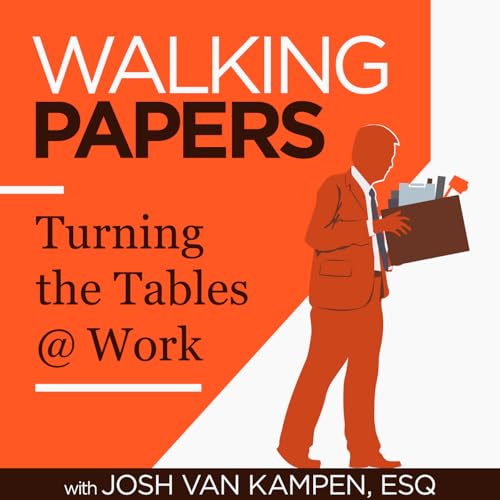Labor and employment attorney Michael Morrison wants you to know there’s a difference between being racist and being implicitly biased.
“Racism is the belief that race is the primary determinant of human traits and capacities, and that racial differences produce an inherent superiority of a particular race,” he says in this episode of The Walking Papers podcast. “Bias, on the other hand, is … the subjective preference toward a particular viewpoint or belief that prevents a person from maintaining objectivity.”
In this episode, the Van Kampen Law attorney expands on discrimination, sharing his opinion that the lines between discrimination and implicit bias blur when an individual becomes aware of yet indifferent to the negative outcomes of their bias. Michael also breaks down why biases occur naturally (spoiler: all of us make most decisions subconsciously); how they play out in the workplace and in the legal system; and how to overcome them.
“Implicit biases can skew talent and performance reviews, in addition to amplifying or mitigating workplace disciplinary measures,” he says. “When one has an unconscious belief, which has been molded years and years over by their lived experiences … it can have an impact on all decision making.”
Michael also elaborates on the concept of cultural humility — aka acknowledging that we all have biases and committing to reducing our reliance on them — and why it’s the first step to combating the activation of these biases.
👉 Featured Guest 👈Name: Michael Morrison
What he does: As a labor and employment law attorney at Van Kampen Law, Michael Morrison advises his clients on legal proceedings related to workplace issues.
Company: Van Kampen Law, PC
Words of wisdom: “Our brains automatically do this thing where it matches a typical categorical prototype to assess its fit. So these mental shortcuts, they're based on social norms and stereotypes that we're all subject to. And they're shaped through our backgrounds, our cultural environment, and our personal experiences.”
Where to find Michael: LinkedIn
💡 Key Ideas 💡Lessons learned on this episode
★ Implicit bias isn’t inherently discrimination, but it can influence behavior in ways that lead to it — Experts agree that most of our decisions are made subconsciously based on social norms, and further shaped by our personal experiences. This becomes an issue in the workplace when you make a decision in favor of one group to the detriment of others, Michael says, which is why implicit bias evidence is regularly used in employment discrimination claims (commonly in the form of expert testimony, general and specific).
★ Everyone harbors implicit biases of some kind, but that doesn’t mean you can ignore their effects — Implicit biases make you human, Michael says, but it’s important to control whether we act on them or not. Your brain’s natural tendency toward implicit bias can be overridden through conscious and deliberate effort, so if you put in the work to be unprejudiced, you can suppress bias responses and become more objective in the workplace.
★ Don't underestimate the power of discomfort — It’s one thing to simply accept your prejudices and train...




